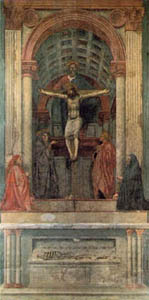"The Inconvenient Conscience"
Cardinal Pell wrote a great defense of the authentic meaning of the "conscience" in Catholic teaching, in the May 2005 issue of First Things -- it is finally available online.
When we imagine that conscience is primarily a mark of individual autonomy, we have to pay certain costs; among these is the decay of the idea of moral truth—even when that truth is something we agree with. More than twenty years ago I used to teach the rudiments of morality to trainee nurses in a hospital-based Catholic course. Many in the class were hostile to the idea of moral truth, sometimes asserting that moral opinions were entirely relative, a function merely of the culture in which they happened to appear.
To explain the weakness of such a position I used to ask them whether the British authorities in India were justified in banning the practice of suttee, where a widow was immolated on the funeral pyre of her husband. None of the nurses had any enthusiasm for the practice, but what was extraordinary was the variety of arguments they used to explain their objections—all desperate, convoluted attempts to dodge the general idea of moral truth, to avoid saying that suttee was simply wrong.
One master defender of moral truth in our lifetime has been Pope John Paul II. He is also a man learned in modern thought and passionate about freedom and the responsibility that arises from the possession of freedom. And what the pope has aimed at is a path between those who assert moral truth but ignore personal freedom, and those who assert freedom but ignore moral truth.
More, he has charted this path using coordinates established by the Scholastics, developed by Newman, and confirmed by the Second Vatican Council. The pope argues that in their consciences human persons encounter moral truth, freely embrace it, and personally commit themselves to its enactment. This account (in the pope’s 1993 encyclical Veritatis Splendor, sections 54-64, for instance) builds upon John Henry Newman’s theory of conscience as man’s free adoption of God’s law. Conscience, in this view, is neither the apprehending of an alien law nor the devising of our own laws. Rather, conscience is the free acceptance of the objective moral law as the basis of all our choices. The formation of a Christian conscience is thus a dignifying and liberating experience; it does not mean a resentful submission to God’s law but a free choosing of that law as our life’s ideal.
Full article: "The Inconvenient Conscience" - George Cardinal Pell










0 Comments:
Post a Comment
<< Home